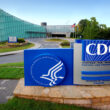According to an article published by Wisconsin Public Radio, Republican lawmakers in Wisconsin are introducing a new bill that would allow pharmacists to prescribe birth control pills and patches. As of now, only doctors can prescribe birth control under Wisconsin state law.
Under this proposed law, all that would be required of patients would be to fill out a questionnaire and undergo a blood pressure test in order to receive a prescription. The two lawmakers pushing for this bill, Reps. Mary Felzkowski and Joel Kitchens, “wrote in a memo seeking co-sponsors that they want to give women more choices for reproductive care and reduce unplanned pregnancies.”
Unfortunately, despite these representatives’ intentions, data shows that increased access to birth control does not always decrease unplanned pregnancies but sometimes increases them, by providing couples with a false sense of security that they cannot have a pregnancy when using it. All forms of birth control have a failure rate and when we consider the high number of people are using birth control, the number of those who get pregnant using it is not insignificant.
As former Planned Parenthood director Abby Johnson describes it to Natural Womanhood, “according to Guttmacher themselves, Planned Parenthood’s own research arm, is that 54% of women who are having abortions are using contraception at the time when they get pregnant. So the idea that contraception is working for women and that it’s preventing [unplanned pregnancies and] abortion is not true. If it were, that number would not be 54%.”
TURNING PATIENTS INTO CUSTOMERS
At present, pharmacists can prescribe birth control in California, Colorado, Hawaii, Maryland, New Mexico, Tennessee, Utah, Washington D.C., and Washington state. Each state has different requirements and restrictions, and pharmacists in these states can opt out of providing this service.
This push towards eliminating the step of visiting the doctor’s office to get prescription medication rings familiar, as Natural Womanhood contributor, Lindsay Schlegel recently wrote about the rise of direct-to-consumer medicine providing websites. In this model, the patient—who is now better described as a customer—fills out an online questionnaire through the website. Their questionnaire is then used to prescribe the customer with the proper medication, which is then mailed directly to their doorstep.
Although this model is certainly convenient, Schlegel addressed the overwhelming concern of where this system might lead us:
“Skipping a visit to the doctor’s office and pharmacy is certainly more convenient than dealing with uncertain wait times. Still, we have to consider that in this model, ‘doctors can’t address secondary issues that surface during a consultation and can’t add information to a patient’s home medical record,’ notes Vishal Khetpal, third-year medical student at the Warren Alpert Medical School of Brown University, in his essay ‘The Worrisome Rise of Direct-to-Consumer Medicine’ published at Undark, an editorially independent magazine.”
While we recognize that by having pharmacists prescribe birth control we are not eliminating face-to-face interaction, this does dispose of the aspects of personal care for the whole health of a patient that only a doctor can provide. In general, pharmacists are not permitted to prescribe drugs, only handle and administer them. Whereas a doctor has the opportunity to treat a patient more holistically, the interaction with a pharmacist is brief and puts them in the position to be more of a drug gatekeeper.
As the access to hormonal birth control is made more easily available without doctors’ involvement, we should be concerned with her that women will become collateral damage in a system that treats them like customers buying harmless products rather than as patients with individual health needs considering taking a very powerful hormone-altering drug.
Fertility Awareness-Based Methods (FABM), also known as “natural birth control” or natural family planning, allow women to manage their health without putting loosely regulated drugs (that come with many health risks and side effects) into their bodies. While our medical system seems to be becoming less and less patient-oriented, it’s reassuring to know that methods like FABMs exist, which allow women to take their health into their own hands in an empowered and safe way.











